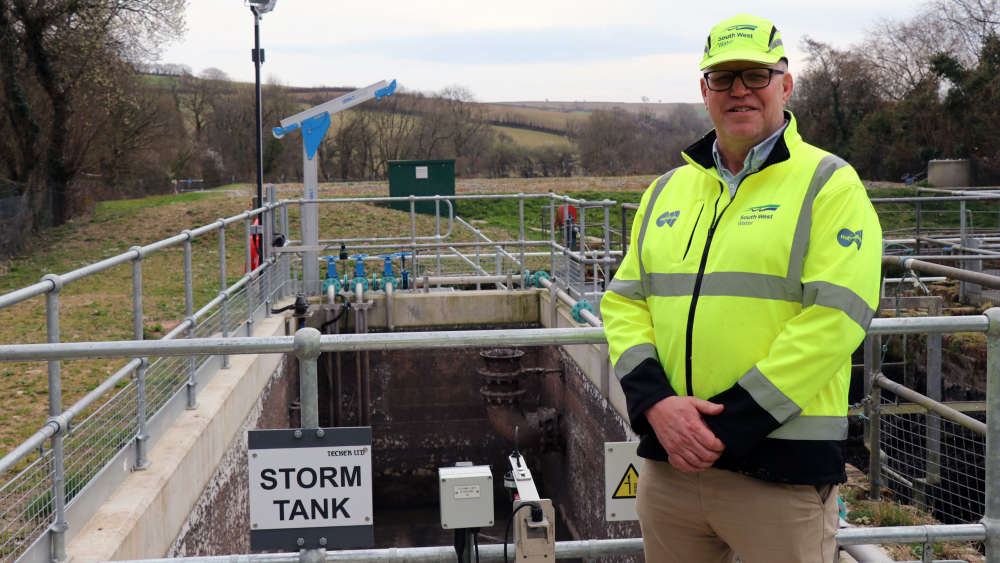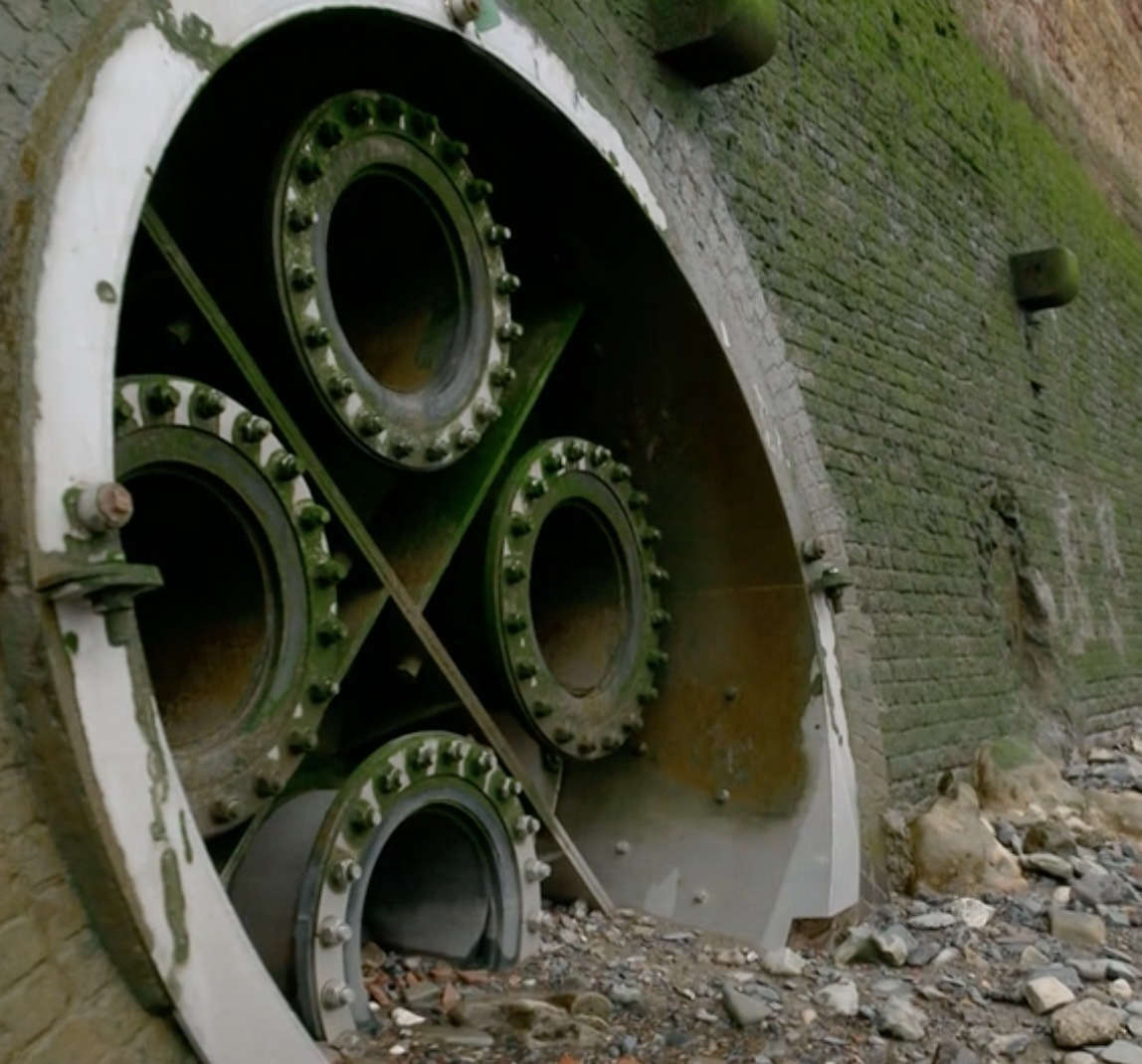
Open letter signed by 66 experts
Sixty-six climate scientists, PhD graduates and other experts working in the discipline of climate change at the University of Exeter have written an open letter to Devon County Council singing its praises for the action its taken on closing roads to cars during lockdown and calling for the measures to be "continued and strengthened."
The council received government funding to implement 'active travel' plans - which means an emphasis on cycling and walking over travel involving engines. The scientists applaud the introduction of 'traffic filters' which allow cyclists to pass through but stop vehicles, and says that unless further action is taken to mitigate climate change, "ongoing heating of the climate will have profound and severe consequences."
The county council is to review its measures on Tuesday. The scientists remind councillors they have declared a climate emergency, and ask that decisions taken at the council meeting reflect that position.
The full letter is posted here:
"We are climate scientists, professionals and graduates of the University of Exeter, one of the leading centres in the world for climate change research. We are also citizens of Exeter and the surrounding area. We are writing to express our support for measures that Devon County Council has already begun to take on our local road systems as a contribution to our community’s efforts to reduce our impact on the climate, and for a continuation and strengthening of these measures. We believe these local measures are consistent with the knowledge developed here in Exeter on the impacts of climate change and need to take action to avoid the worst of its impacts, and would like to see them continued and strengthened.
Our research conducted in Exeter shows beyond doubt that humans are causing the climate to change, both here and around the world. The impacts of this are already being seen in the form of more severe heatwaves, more intense wildfires, rising sea levels and increased heavy rainfall bringing greater risk of flooding. Many species of animals and plants are also being impacted. Our research also shows that if left unchecked, ongoing heating of the climate will have profound and severe consequences.
The international community has recognised the need to avoid this by establishing the Paris Agreement, which commits all nations to pursue efforts to limit global warming to 1.5°C above pre-industrial levels. The UK has set itself the target of bringing its domestic carbon emissions to net zero by 2050, and Devon County Council, Exeter City Council, and Devon’s District Councils have all announced their aim to address climate change by declaring a Climate Emergency, as has the University of Exeter. Exeter City Council has set the city the goal of being carbon neutral by 2030.
We have been pleased to see that Devon County Council took advantage of funding made available by the government to implement alterations to some of Exeter and Devon’s roads, for example by installing traffic filters which limit vehicular access but allow cycles to pass through. This has clearly been successful in encouraging more people to use cycling and walking as a means of local travel, which is a very positive step towards reducing our community’s carbon emissions and hence reduce our impact on the climate. It also has direct health benefits, as it contributes to reduced air pollution and encourages more people to take exercise, which helps tackle the growing obesity crisis in the UK.
We strongly support the continuation and expansion of these measures, with appropriate adjustments to address specific improvement needs. These are important first steps in tackling climate change, and reversing them would be contrary to the council’s previous pledges and send out the wrong messages. As leading scientists in the field of climate change, we are proud of our association with the city of Exeter and county of Devon, and would very much like to see our community set an example to the rest of the world by continuing to take pro-active steps to reduce our impact on the climate.
We understand that the current measures will be reviewed on 13 October. We ask that you ensure that your decision is consistent with the council’s previous declaration of a climate emergency, and give priority to the consideration of environmental and health benefits. We hope that we will be able to proudly say that our local authority has properly understood the implications of the world-leading science developed here, and taken appropriate action."
Professor Richard Betts MBE, Chair in Climate Impacts
Dr Penelope Maher, Climate Scientist
Lina Mercado, Associate Professor
Rayanne Vitali, PhD in Earth System Science
Neill Mackay, Climate Researcher
Angela Gallego-Sala, Prof in Ecosystems and Biochemical Cycles
Dr Jesse F. Abrams, Postdoctoral Research Fellow
Paul Kim, PhD student
Andrew Gilbert
Ross Castle
Timothy Lam, PhD Student
Laura Owen
Prof Mat Collins
Matthew Priestley - Climate Scientist
Jack Oughton
Ruth Geen, Research Fellow
Toby Pennington, Professor, University of Exeter and Royal Botanic Garden Edinburgh
Dr James Dyke Assistant Director Global Systems Institute
Rebecca Varney
Anne Nicholls, Global Systems Institute Administrator
Ned Williams, PhD researcher in high resolution climate modelling
Xiaoyu Xiong, Postdoctoral Research Fellow
Matthew Henry
Andrew Cox - PhD Candidate in Physical Geography
Kate Baker, Research Fellow
George Manville, PhD Student
Tom Powell, Research Fellow
Lucy Rowland, Associate Professor
Dr Jamie Shutler, Associate Professor in Earth observation
Ruth Chapman, PhD student
Shenan Grossberg, Post-doctoral Research Fellow, Exeter Climate Systems, University of
Exeter
Joseph Clarke, PhD Researcher
Dr Jonathan Beverley, Postdoctoral Research Associate
Ted Feldpausch, Associate Professor
Dunia H. Urrego, Senior Lecturer
Andrea Rochner, PhD candidate in Physical Geography
Marianne Pietschnig, Postdoctoral Research Fellow
Carolina Duran Rojas, Software Engineer
Theo Economou, Senior Lecturer
Daniel Williams, PhD Student
Holly Ayres
Mayra Rodriguez, PhD Candidate
Dr Jemma Shipton
Lilly Damany-Pearce, Graduate Research Assistant
Jennifer Catto, Senior Lecturer in Climate Science
Rob Chadwick, Lecturer in the Global Systems Institute
Sarah Baker, Researcher
Denis Sergeev, Postdoctoral Research Fellow
Claudio Sanchez
Anna Harper
Andy Hartley, PhD Graduate
Paul Halloran, Senior Lecturer in the College of Life and Environmental Science
Dr Anna Łosiak, MSC Fellow.
Rosemary Eade, Climate Scientist
Femke Nijsse
Professor Peter Cox
Sian Hyland, Climate Science PhD Student
Alex West, PhD Student
Professor David Stephenson, Head of Exeter Climate Systems
Arie Louwerse
Dr Stefan Siegert, Lecturer in Mathematics
Dr Andy Wiltshire, Climate Scientist
Teuntje Hollaar, PhD
Chris Dalby, PhD
Catherine Bradshaw, Lecturer
Dr Doug McNeall, Lecturer
 North Molton storm overflows halved
North Molton storm overflows halved
 Devon County Council elections - all the candidates, all the wards, all the key dates
Devon County Council elections - all the candidates, all the wards, all the key dates
 Exmoor Coaster service coming back under different name
Exmoor Coaster service coming back under different name
 Bodmin Moor fires are suspicious
Bodmin Moor fires are suspicious
 Storm overflow prevention work set for Plymouth
Storm overflow prevention work set for Plymouth
 Help needed to find Exminster pensioner
Help needed to find Exminster pensioner
